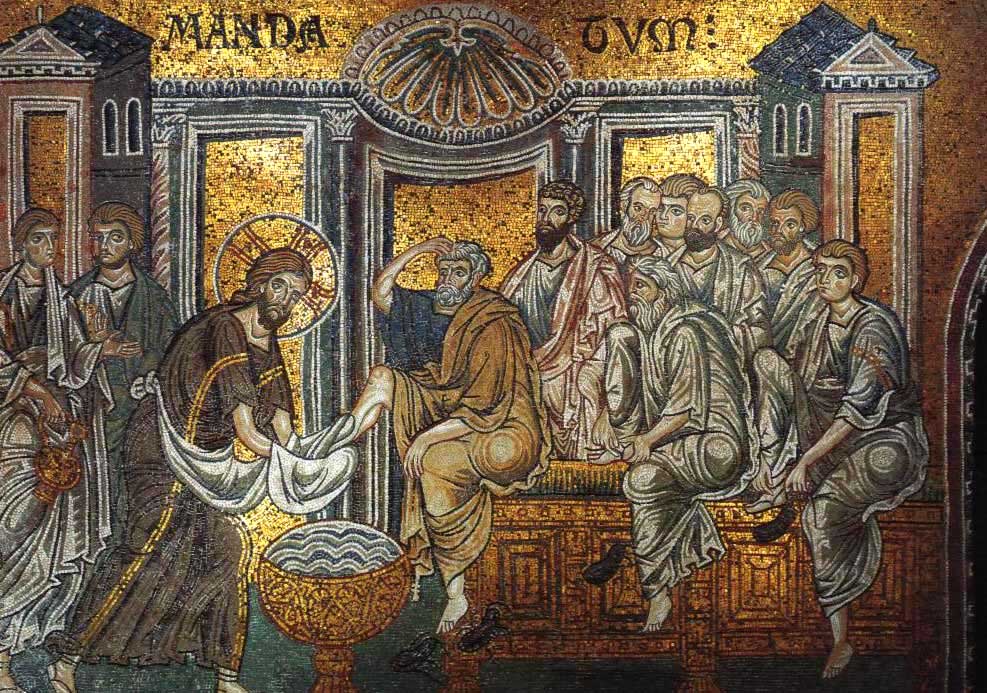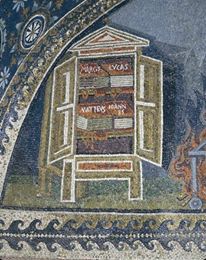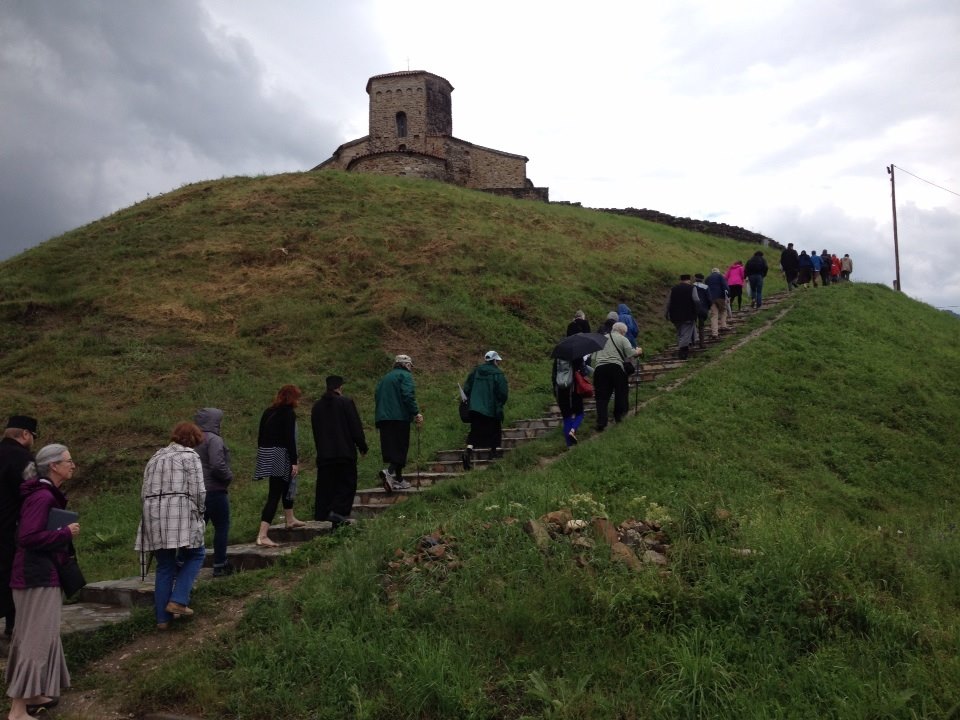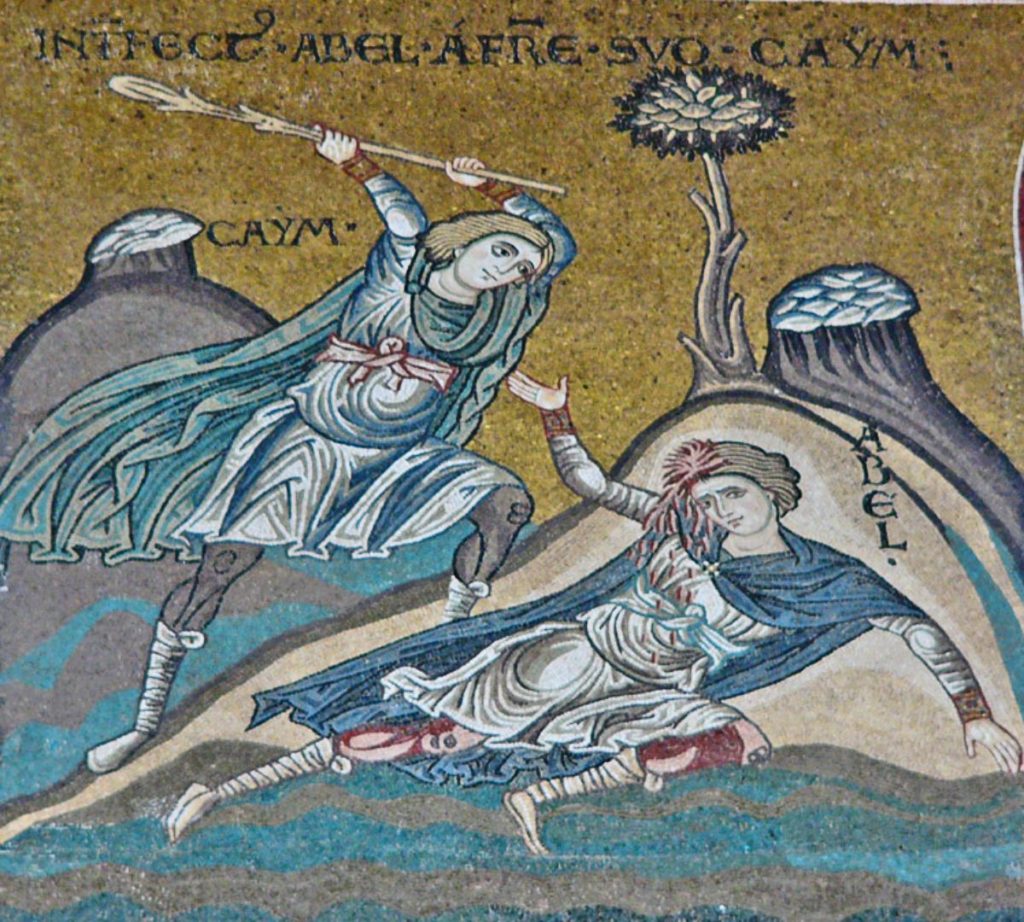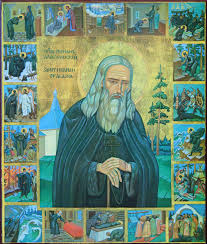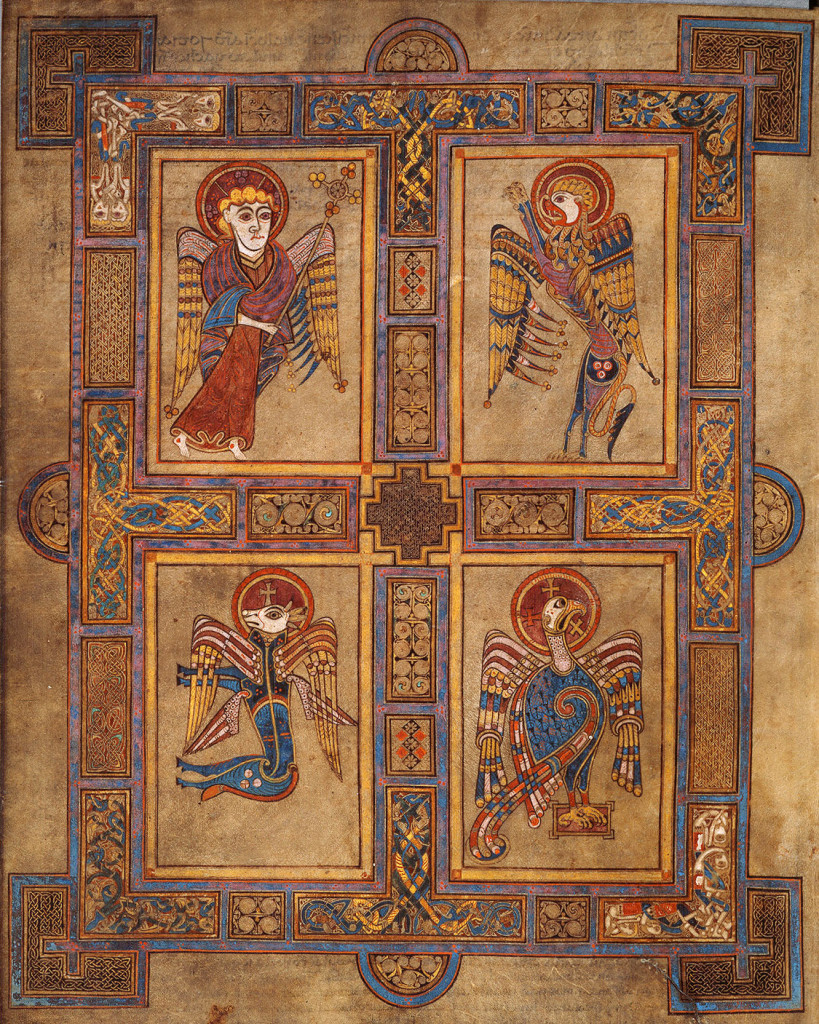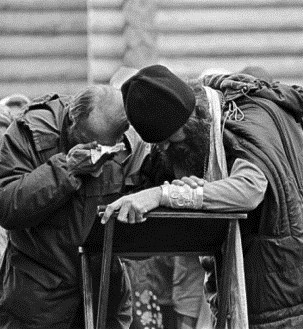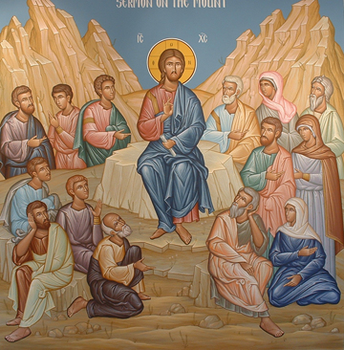You can listen to an audio podcast of this post at https://www.spreaker.com/episode/becoming-acceptable-to-god-thursday-of-the-1st-week-of-luke–62208959
Thursday of the First Week of Luke
In the cycle of the daily readings, today we read once again the Gospel passage that we read on the Church New Year: St. Luke’s account of the Lord’s entering the synagogue at Nazareth and announcing His Messiahship by proclaiming the acceptable year of the Lord.
At that time, Jesus came to Nazareth, where he had been brought up: and, as his custom was, he went into the synagogue on the sabbath day, and stood up for to read. And there was delivered unto him the book of the prophet Esaias. And when he had opened the book, he found the place where it was written, The Spirit of the Lord is upon me, because he hath anointed me to preach the gospel to the poor; he hath sent me to heal the brokenhearted, to preach deliverance to the captives, and recovering of sight to the blind, to set at liberty them that are bruised, To preach the acceptable year of the Lord. And he closed the book, and he gave it again to the minister, and sat down. And the eyes of all them that were in the synagogue were fastened on him. And he began to say unto them, This day is this scripture fulfilled in your ears. And all bare him witness, and wondered at the gracious words which proceeded out of his mouth. And they said, Is not this Joseph’s son? – Luke 4: 16-22
St. Theophan the Recluse points out that, unlike all the prophets before Him, the Lord Jesus Christ not only could preach about the acceptable year of the Lord, He could – and did – make it happen; He brought it with Him.
The Lord not only came “to preach the acceptable year,” but He brought it as well. Where is it? In the souls of believers. The earth will never become a Paradise under the current state of affairs; but it is and will be an arena of preparation for the heavenly life. The rudiments of heavenly life are placed in the soul, and the possibility for this lies in God’s grace – Who brought, consequently, the acceptable year for souls. He who listens to the Lord and fulfills all that is commanded by Him receives grace, and with its power enjoyes the acceptable year within himself. This truly occurs in all who sincerely believe and act according to faith. You will not fill your souls with “acceptableness” by thinking; you must act, and it will enter in on its own. There might not be any outer peace whatever, just inner peace, yet it cannot be separated from Christ. But it always happens that as soon as inner peace is established, outer disturbances are neither bitter nor heavy. Consequently, the acceptable year is there even in this respect – it only seems like a cold winter on the outside. – Thoughts for Each Day of the Year, pp. 210-211
These brief words of St. Theophan address a spiritual malaise most of us share: sluggish inactivity based on a dreamy desire for a phony paradise both without and within. The phony external paradise we dream of is an earthly life with no problems, in which everyone is just and kind to us. The phony internal paradise we dream of is a state of inner purity, calm, and happiness based simply on thinking and not on doing. The heresies associated with these delusions are, respectively, chiliasm and gnosticism, and the two work together and feed each other.
As St. Theophan rightly points out, this earth will never become a paradise in the present, fallen state of affairs prior to the destruction and re-fashioning of the cosmos into a New Heaven and a New Earth. This earthly life, rightly understood, is an arena in which we struggle for our salvation, a very short trial in which we choose to do or not do that which is acceptable to the Lord. Chiliasm – derived from the Greek word for “a thousand” – is, strictly speaking, the heresy that teaches that the thousand-year reign of Christ spoken of in the Apocalypse is a future event that will take place here on earth, in the form of an outward, global political order. But there is also a broader application of the concept: anyone who wants “the Kingdom of God on earth” in the literal sense partakes of the chiliast spirit and the chiliast delusion. Surely we desire for God’s will to be done on earth as it is in heaven – the Lord Himself told us to pray for this. This takes place, prior to the end of the world, in the lives of those who do God’s will, and certainly there have been families, monasteries, parishes, whole national Churches and kingdoms in which God’s light, the light of Orthodoxy, showed forth more brilliantly than in other places: these people and communities were (and, we pray, will be) little icons of the heavenly kingdom, little foretastes of what is to come in eternity. But there will never be a time in which Christ will reign on earth as an earthly king, either directly or through a vicar like a pope or emperor, or through a “chosen race.”
The ever-present spirit of chiliasm distracts the pious from what they have control over – struggling for their salvation – by entertaining them endlessly with the demonically orchestrated struggles of financiers, politicians, parties, races, and nations for dominance. Today this is far truer – quantum leaps truer – than ever. I say “quantum leaps,” because global communications technology has given worldly powers the ability to distract and delude everyone 24 hours per day in such an addictive fashion, it is a wonder there is anyone left who can think straight. Facing this state of affairs realistically, we must beg God for the grace to re-double our efforts to pray and work in a disciplined fashion, simply to pay attention to that over which we have control, and deal with it. We must remember, always: this life is short, death is certain, and judgment is eternal. Seen in this light, promises of an earthly paradise will not entrap us in the cycle of excitement, failure, disappointment, and despair.
When one despairs over the phony, chiliast earthly paradise, then one is tempted to retreat within selfishly, give up on the moral struggle, and desire a phony, gnostic internal paradise.
Gnosticism is the idea that if you have a certain secret knowledge about “what’s really going on behind the scenes,” you are among the elect. A gnostic does not have to be moral or receive God’s forgiveness or even try to do anything good. He just has to sit around smugly and say to himself, “I know what’s really going on, unlike all those suckers out there.” And with this he is content. We are not going to join sects and secret societies that offer such a bogus salvation, but, as with the chiliast temptation, we all have the gnostic temptation: to try to think our way to salvation instead of seeking and doing God’s holy will. We can spend endless hours on websites to “find out what is really going on” and thereby feel secure through our “knowledge.” We can turn Orthodoxy into a kind of gnosticism in which, despite the manifest reality that we are enslaved to various passions, we read books on spiritual life and, instead of being brought to repentance, we imagine that we are thinking or feeling the thoughts and feelings of the saints, or in which we read the canons and derive satisfaction from knowing that so-and-so over there is breaking them, and since we are not (or think we are not), we are the good guys. All the while, we are wasting time, skipping prayers, fasting poorly, gossiping, not supporting our parish, neglecting our family, spending money on stupid things, and looking at some kind of screen x hours per day far in excess of what is necessary.
Being “in the know” does not save. The Lord said that the truth will set us free, but this comes true only if, having learned the truth, we obey it. “If you love Me, keep My commandments (John 14:15).” St. James says that the demons believe – and tremble (James 2:19). Not falsehood only is demonic. Accurate knowledge without repentance, without humility, without morality, without the spiritual and corporal works of mercy, is also demonic.
Therefore, with the ever-present help of the divine grace so abundant in the Church, let us make a short list of our real, daily spiritual and earthly duties, and do them, praying always. Let us heed the admonition of our Venerable Father Herman of Alaska, and if God be with us, we cannot fail:
“For our good, for our happiness, let us at least make ourselves a vow: that from this day, from this hour, from this minute, we shall strive to love God above all and do His commandments!” – from “Little Russian Philokalia,” Vol. III, St. Herman, St. Herman Press, 1989, p. 108
